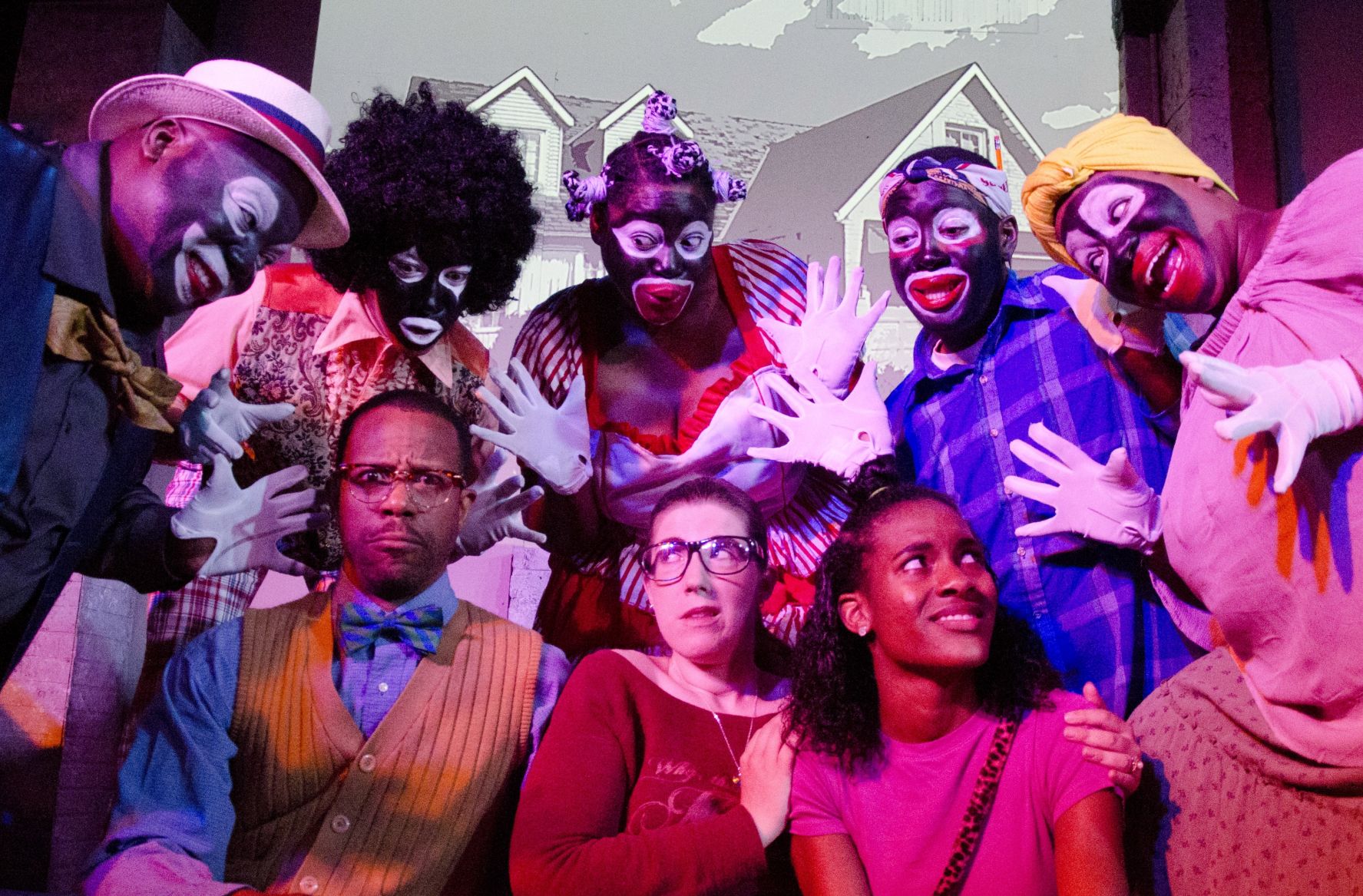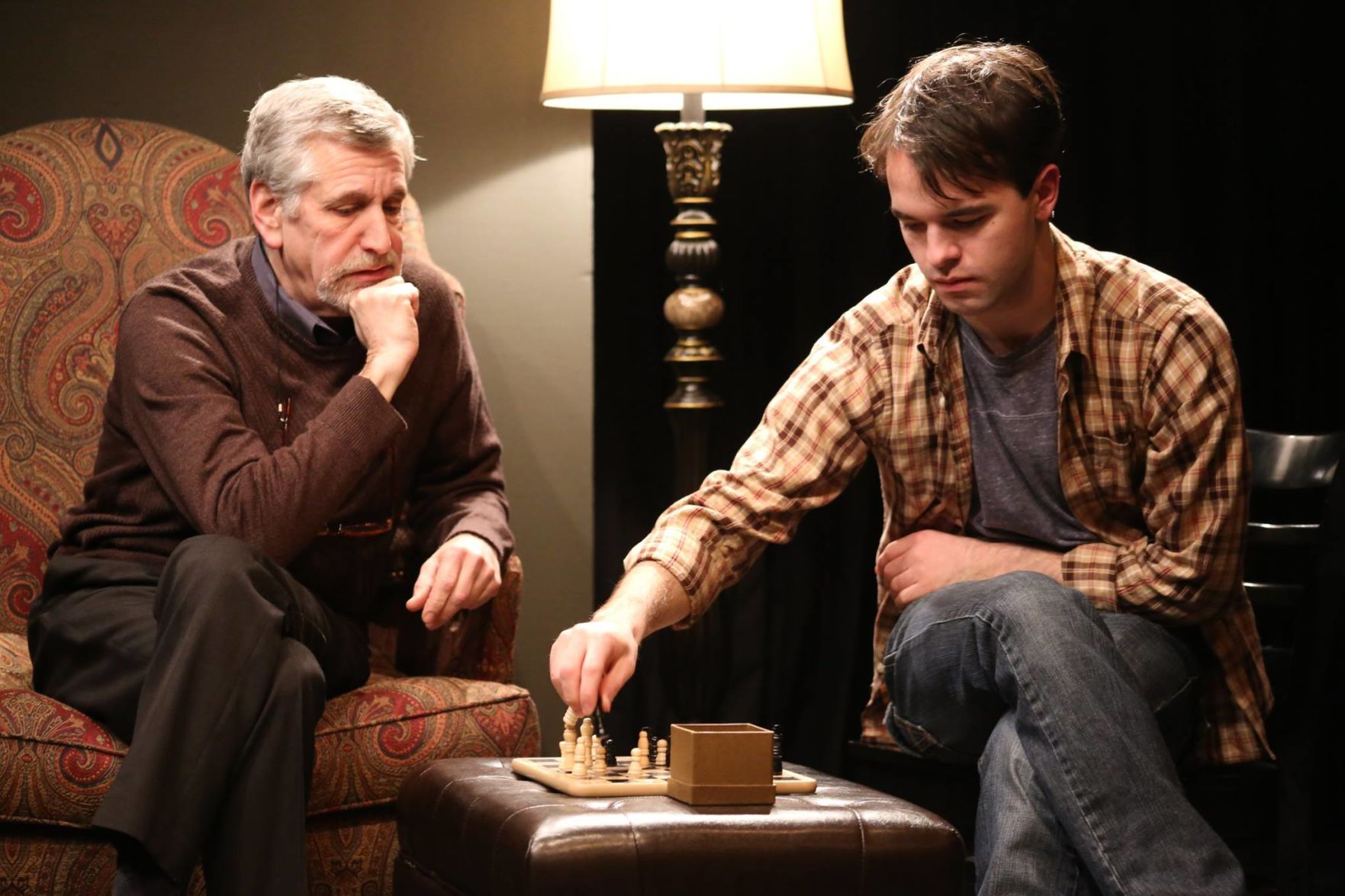Great Lakes Theater finds joy in Shakespeare’s ‘Love’s Labour’s Lost’
By Bob Abelman
In her program notes for Great Lakes Theater’s current production of “Love’s Labour’s Lost,” director Tyne Rafaeli calls the play “a polyphonic explosion — a feast of style and language.”
An explosion it is, but the writing is more smorgasbord than feast.
Rather than choose one of the poetic styles in fashion in London in 1589, the young and cocky Will Shakespeare included them all: sonnets, rhyming couplets, lengthy quatrains, puns in English and Latin, a seemingly endless supply of alliterations, and a constant stream of quick-witted wordplay.
There are more speeches by more people in this lesser comedy than in most of Shakespeare’s later works, as well. And by writing a play that is both a celebration and condemnation of poetry and puns, there are plenty of inside jokes about language whose meaning and cleverness have not traveled well across the centuries. Starting with the title.
It is little wonder that this overstuffed and comparatively unrefined play, with its boisterous opening and sober conclusion, went largely unproduced for much of its early history. Few theater companies have the talent to do this play and fewer still have it in the bulk required to do it well.
The Great Lakes Theater does and it most certainly has the talent. They manage to turn all the heightened language and immense loquaciousness into a joyous affair.
What helps make “Love’s Labour’s Lost” manageable to perform is its very simple plot.
King Ferdinand of Navarre (Jonathan Dyrud) and his privileged pals — Berowne (Christopher Tocco), Longaville (Jeb Burris) and Dumaine (Nick Sheen) — swear by an idiotic oath to spend the next three years engaged in deep study, far from the distraction of women.
Within moments of signing the oath, the Princess of France (Erin Partin) and her attendants — Rosaline (Laura Welsh Berg), Maria (Christine Weber) and Katherine (Heather Thiry) — arrive for a visit. They are as beautiful as they are smart and cynical. And they do not suffer fools gladly.
Let the battle of the sexes in the war of words — in their many manifestations and significant measure — begin.
Each of the eight featured and immensely gifted performers in this play manage to create rich, interesting characters defined by their own particular brand of wordplay.
But it is the scenes that focus on the secondary characters — the Spanish braggart Don Armado (David Anthony Smith), the clown Costard (Juan Rivera Lebron), and the pompous schoolmaster Holofernes (Dougfred Miller) — that are the funniest. Miller is particularly ingenious in his delivery of the character’s random Latin phrases, unbearably precise and pompous expression, and excruciating redundancy.
The play’s poetic styles are so many that Shakespeare adds numerous ancillary characters to the festivities to showcase them, including the constable Anthony Dull (Tom Ford), the curate Nathaniel (M.A. Taylor), the Princess’ attendant Boyet (Chris Klopatek), and the dairy maid Jaquenetta (Maggie Kettering). Director Rafaeli wisely casts excellent performers in these roles, adding a layer of humor to the mix.
As if to reward us for listening so intently for so long to Shakespeare’s folly, Rafaeli gives us lots to look at.
There is plenty of playful, physical humor worked into this production, which is cleverly choreographed by Jason Paul Tate. And each character is adorned with colorful and contrasting modern costuming, designed by Andrea Hood. The single set piece, designed by Kristen Robinson, is a mountainous hardwood library that expands the full width and height of the stage, with a grass-covered floor that appears to have been overtaken by nature. Like the oath sworn by the boys, the stage itself pits instinct against intellect.
The bookshelves are filled with hardbound texts, various literary artifacts and, in one of the best scenes in the play, the boys themselves. Ferdinand and his cronies comically plow through shelves of books in an effort to escape the palace’s inner sanctum to get at the girls outside. And, when trying to avoid being seen while eavesdropping on each other’s failed attempts at seduction, the boys hang precariously from ladders and the edges of the highest shelves.
This play is most certainly not Shakespeare’s best. But the folks at Great Lakes have made the most of it. CV
On stage
WHAT: “Love’s Labour’s Lost”
WHERE: The Hanna Theatre, 2067 E. 14th St., Cleveland
WHEN: Through April 24
TICKETS & INFO: $13-$70. Call 216-241-6000 or visit greatlakestheater.org.
Bob Abelman covers theater and cultural arts for the Cleveland Jewish News. Follow Bob at Facebook.com/BobAbelman3.
Originally published in the Cleveland Jewish News on April 11, 2016.
Lead image: Christopher Tocco (Berowne), from left, Nick Steen (Dumaine), Jonathan Dyrud (Ferdinand) and Jeb Burris (Longaville). PHOTO | Ken Blaze











